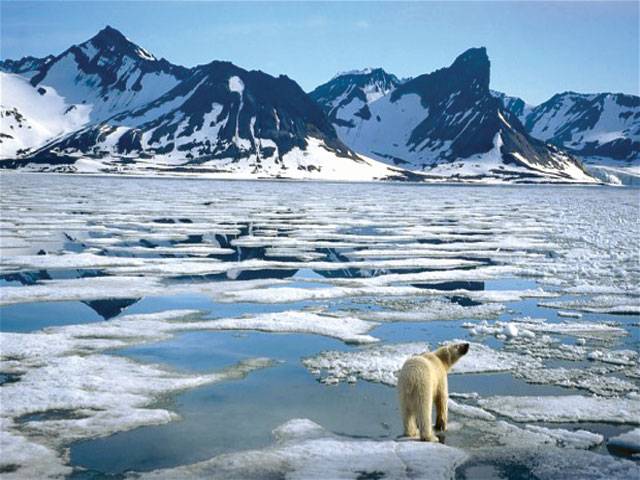AFP
WASHINGTON - The United States announced Friday it would appoint a special envoy to the Arctic, a region increasingly coveted by several countries for its oil and other raw materials.
Secretary of State John Kerry pointed to the huge resources that lie in the northernmost polar region as he unveiled plans to name a senior “official of stature” to advance American interests as Washington prepares to chair the eight-country Arctic Council next year.
“The Arctic region is the last global frontier and a region with enormous and growing geostrategic, economic, climate, environment and national security implications for the United States and the world,” Kerry said in a statement. “The great challenges of the Arctic matter enormously to the United States, and they hit especially close to home for Alaska.”
Six of the eight Arctic nations - Canada, Denmark, Finland, Iceland, Norway, Sweden, Russia and the United States - currently have ambassador-level diplomats representing them before the Arctic council. Parts of Alaska and other US territories lie in the Arctic. “President (Barack) Obama and I are committed to elevating our attention and effort to keep up with the opportunities and consequences presented by the Arctic’s rapid transformation - a very rare convergence of almost every national priority in the most rapidly - changing region on the face of the Earth,” Kerry said.
“Going forward, I look forward to continuing to work closely with Alaska’s Congressional delegation to strengthen America’s engagement in Arctic issues.” Alaska Senator Mark Begich, who has pushed legislation for a US envoy to the region since 2008, called Kerry’s decision an “important step in the right direction.”
“The bottom line is that the changes we see in the Arctic warrant a higher level of involvement from the US and this position will allow us to better exercise leadership and vision in Arctic policy moving forward,” the Democratic lawmaker added. The Arctic has seen growing international interest in recent years, as global warming causes the Arctic ice cap to melt and opens new navigation routes that facilitate the use of previously inaccessible raw materials.
Friday, April 19, 2024
US to appoint Arctic envoy

Caption: US to appoint Arctic envoy
Germany head coach Julian Nagelsmann extends contract till 2026 World Cup
9:00 PM | April 19, 2024
IMF urges Italy, France to spend less, Germany to loosen purse strings
8:57 PM | April 19, 2024
PM calls UAE president, admires Emirati leadership's response to recent Dubai rains
8:55 PM | April 19, 2024
Church leader calls for including Christians in Gandhara Corridor
8:50 PM | April 19, 2024
Empowering Women: The Vision of Maryam Nawaz Sharif
8:37 PM | April 19, 2024
A Tense Neighbourhood
April 19, 2024
Dubai Underwater
April 19, 2024
X Debate Continues
April 19, 2024
Hepatitis Challenge
April 18, 2024
IMF Predictions
April 18, 2024
Kite tragedy
April 19, 2024
Discipline dilemma
April 19, 2024
Urgent plea
April 19, 2024
Justice denied
April 18, 2024
AI dilemmas unveiled
April 18, 2024
ePaper - Nawaiwaqt
Advertisement
Nawaiwaqt Group | Copyright © 2024





